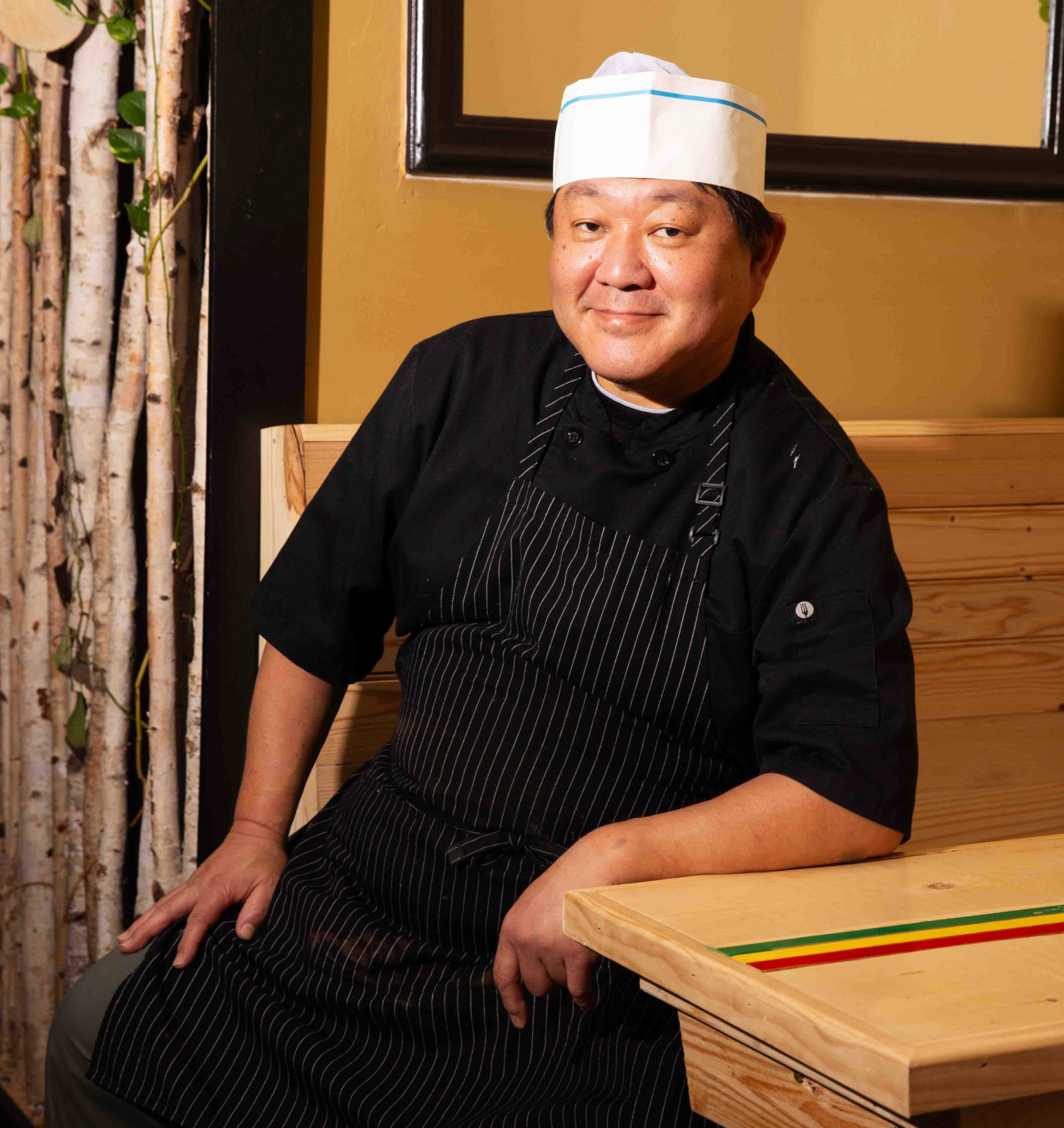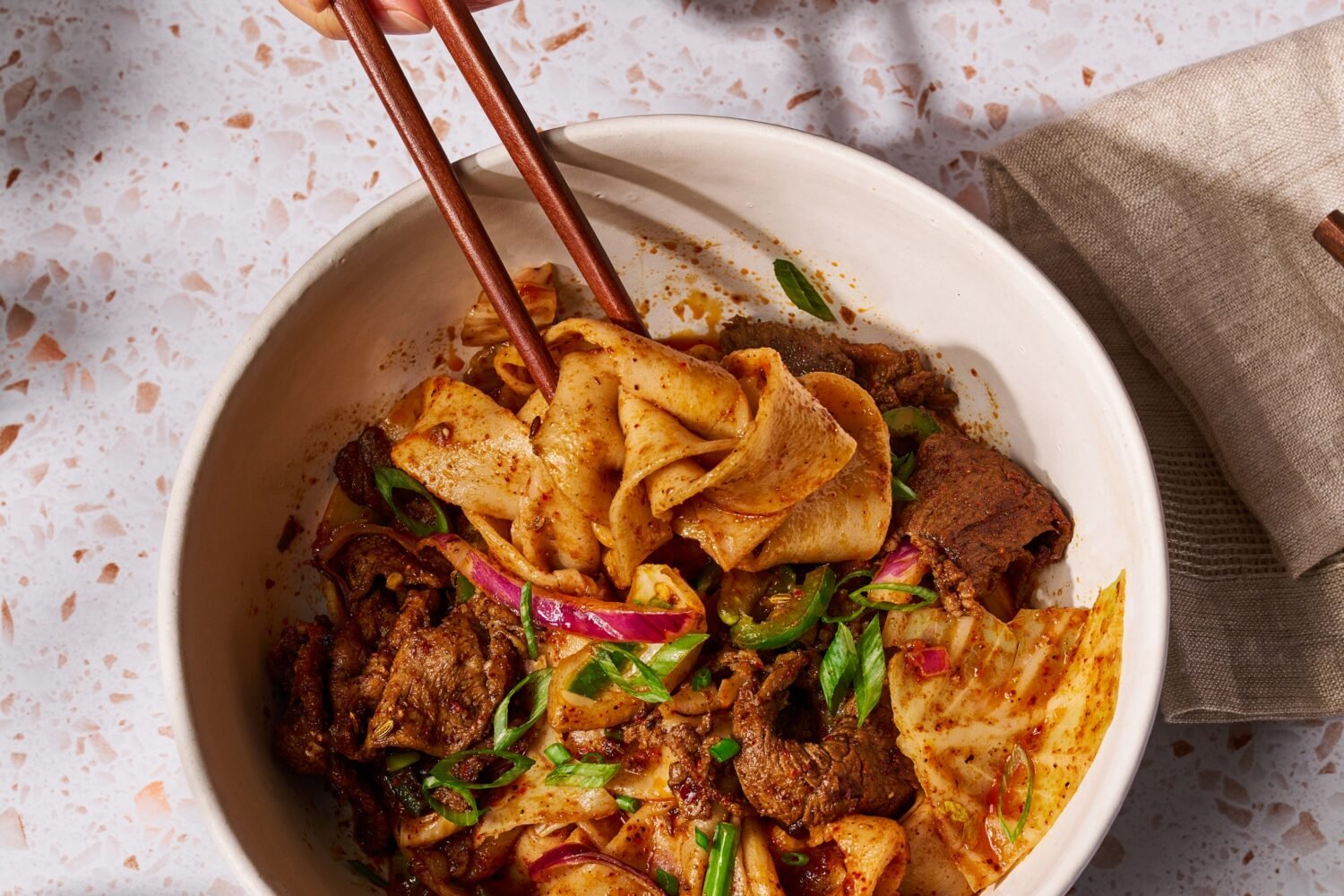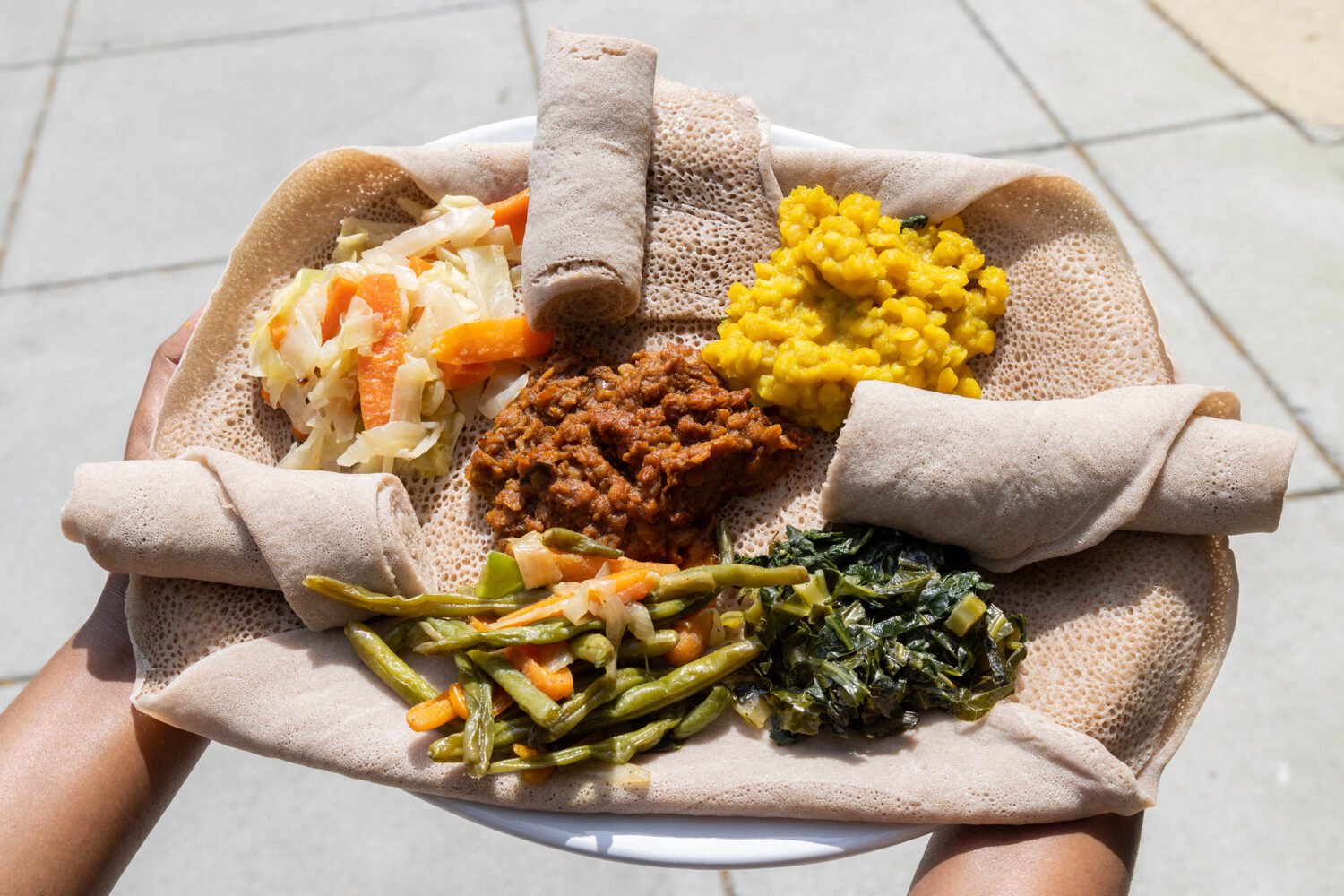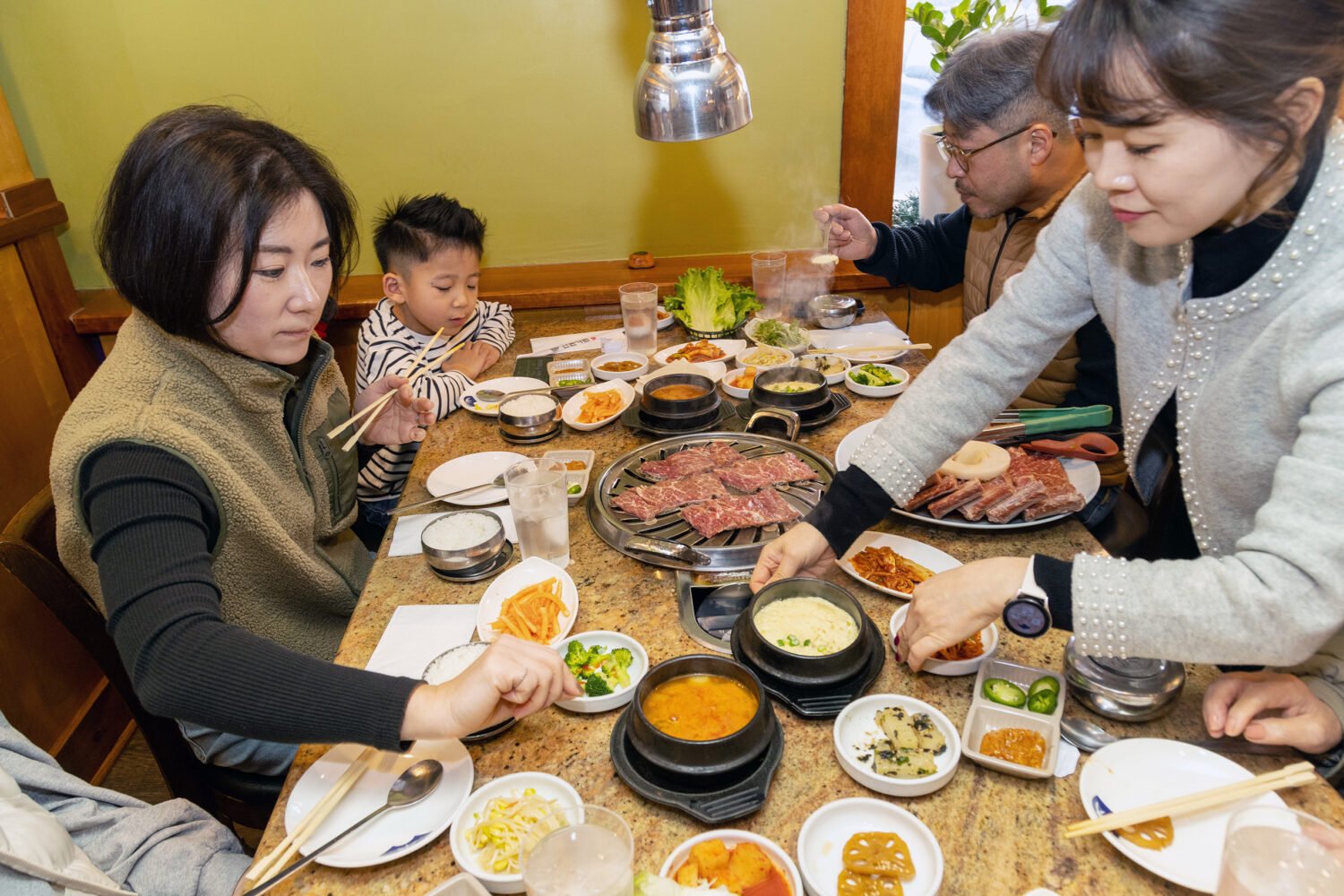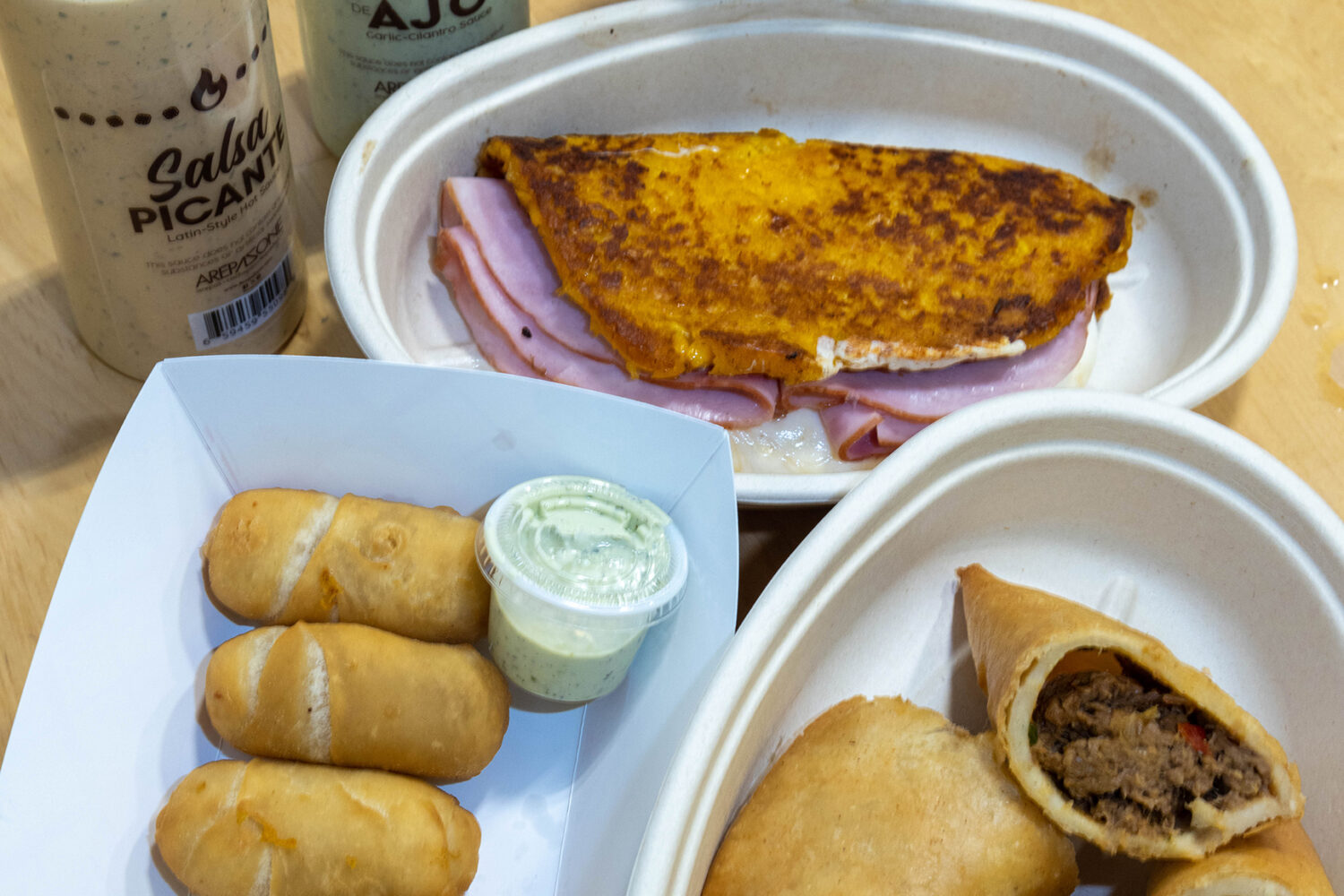Misrak Gebrehiwot communicates with her husband, chef Takehiko Inoue, in fragments of Japanese, Amharic, and English. It’s a fusion language the two began to create 15 years ago, when they met working in the Japanese embassy’s kitchen in Addis Ababa.
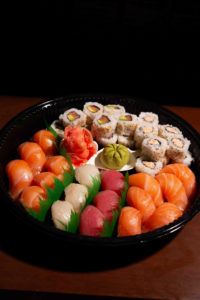
In late 2020, after stints in Tehran, Uganda, and Miami, the couple settled in DC’s Brightwood Park and revealed another distinctive hybrid: the Ethio-Japanese Mita Café, where you’ll find fresh, modestly priced nigiri and maki next to colorful platters of vegetarian salads and stews set atop injera.
“I didn’t have experience opening restaurants by myself,” Gebrehiwot says. “But everybody loved his sushi and my veggie combos.”
Inoue spent years jetting between jobs in Japanese embassies around the world, part of a specialized class of mobile sushi chefs who provide fish-related expertise for Japanese diplomats in unfamiliar countries. At $20.99, the Tokio Papa platter is a good showcase of his skills: six nigiri (salmon, tuna, and snapper), with tuna-avocado and baked-salmon rolls. Plus, it provides a unique sensory experience when paired with the scent of Gebrehiwot’s cumin-and-cardamom-scented butter sizzling on the stove.
Gebrehiwot, who formerly worked at the Howard University cafeteria, prepares a classic Ethiopian veggie platter, with collard greens, lentils, and cabbage ladled onto a sprawling round of injera. And she perfumes the cafe’s American standards with Ethiopian seasoning: The Abay panini, a weekend special, combines ground meat with butter and a zippy, cardamom-scented mitmita spice mix. “It’s kitfo, but instead of injera, we put it on panini bread,” she says.
Coffee drinks are made with roasted Ethiopian beans, and iced black tea is of the strong East African variety. This year, the couple secured a liquor license, so Habesha beer joins the lineup of Japanese lagers.
Three years in, even after a recent renovation that brought a vaguely Scandinavian feel to the place, Mita still has an improvised quality. It’s a small space—a former florist’s shop—and Gebrehiwot prepares her sandwiches and veggie platters on a hot plate behind the counter. (Inoue ascends from his basement sushi lab when things get busy.) Most folks come for carryout, but there are a few comfortable chairs and tables.
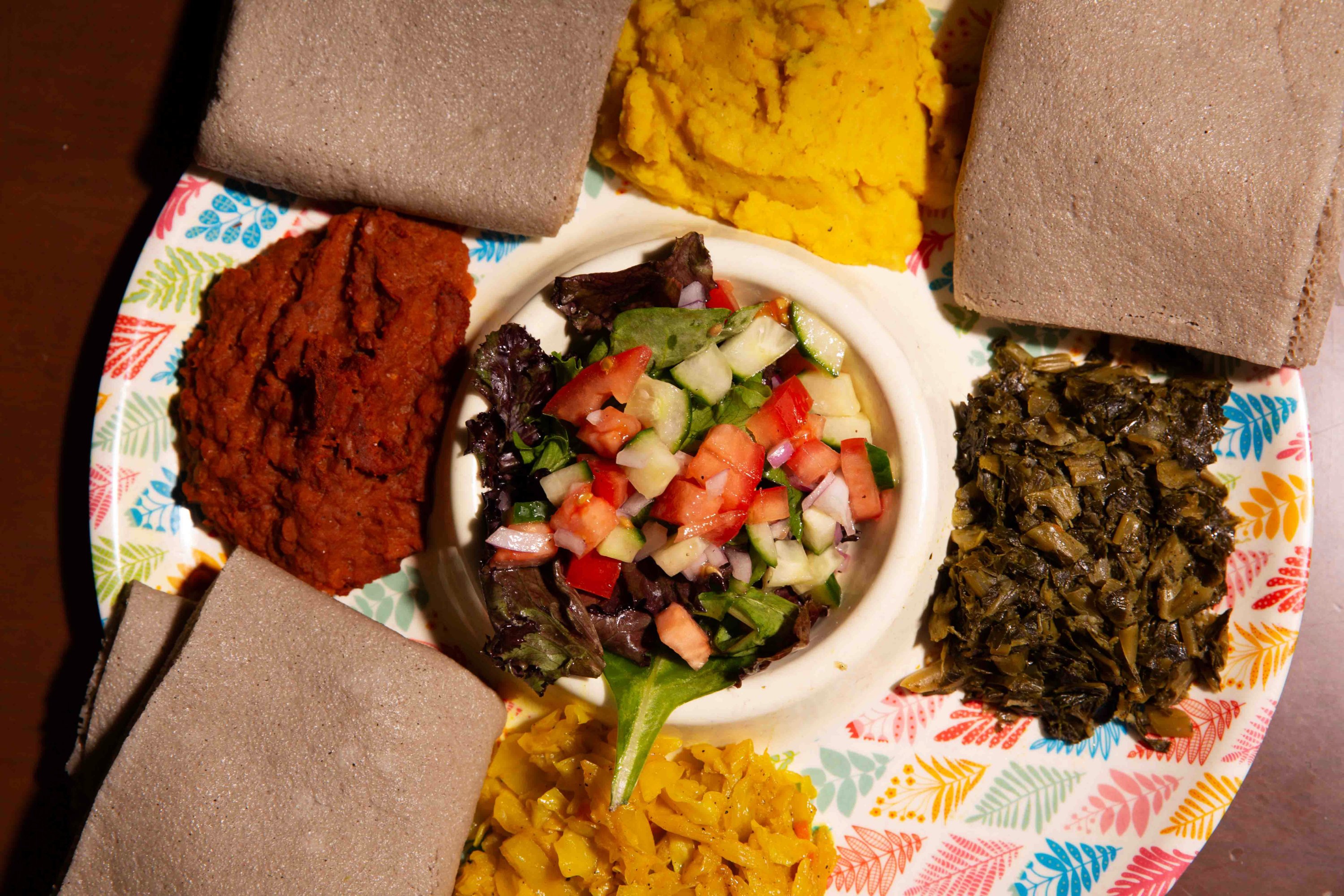
When the small Ethiopian grocery next door went up for rent last year, Gebrehiwot took it over, with the idea of turning Mita into a full-service Ethio-Japanese restaurant (tibs and shiro alongside ramen and tempura). But the permitting process proved prohibitive, and instead, the space will become Mita Market, stocking rice crackers, Ramune soda, green tea, berbere, and injera. Look for it to open later in the summer.
This article appears in the August 2024 issue of Washingtonian.

